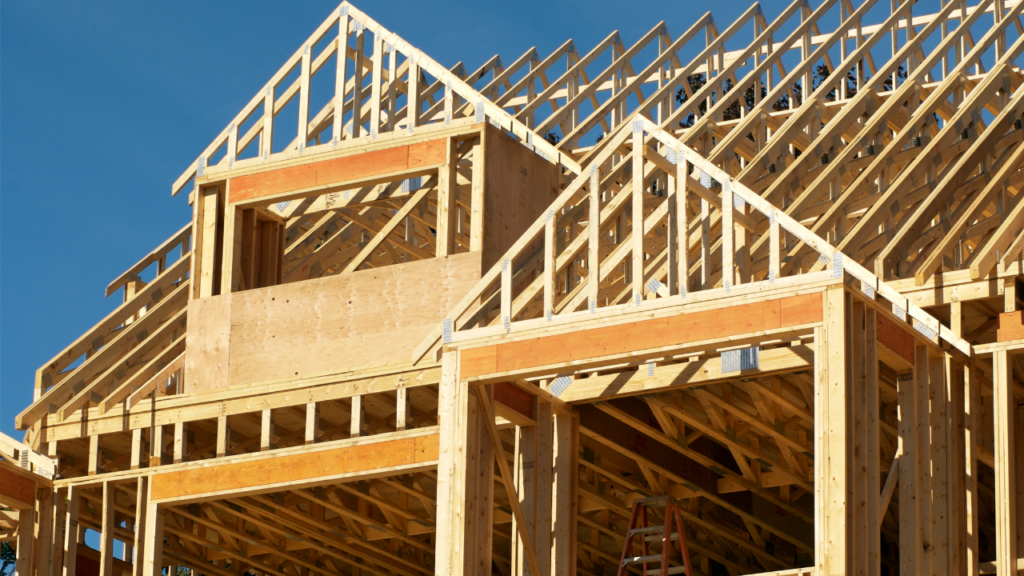
Want to build a home without having to worry about taking out a construction loan? You guessed right—it’s totally possible! paying cash for new construction home is an alternative to the construction loans that most people choose. But when we talk about “paying cash,” we don’t mean a dramatic scene where you show up to the builder’s office and give over suitcases full of dollars.
Rather, the buyer pays the costs directly out of their own pocket, usually via a bank transfer or a cashier’s cheque. We’ll examine scenarios where buying a new house with cash is a sensible financial decision and discuss the benefits of doing so in the sections that follow.
Things that cross your mind while paying cash for new construction home
Is it legal to pay for a custom built home in cash?
Absolutely! You can pay cash to build a custom house and its totally legal. We typically imagine people paying cash to build house are those who have suitcase full of cash in their hand. no that’s not the case you can transfer payment in there bank account or give them the check.
When Does It Make Sense To Pay Cash For A New Build Home?
There might be a time when it is beneficial to paying cash for new construction home. We will discuss this all-in detail.
Can You Afford Your House Now and the New One ?
Are you staying in your house while building your new house. Are financially strong enough to afford your current house and pay cash for your new one. You can also consider selling or rent your current house.
You Don’t Have Other Dept
If you have dept on you consider paying that dept. So, you don’t have any burden on your shoulder while paying cash for new construction home.
You Have Emergency Saving
Another thing to consider before paying cash for constructing a new house that you have sufficient saving in case of emergency.
How To build A House Without A Construction Loan?
- Alternative forms of finance, like owner-builder financing, home equity loans, private financing, and personal savings, can be used to build a bespoke home without the need for a construction loan.
- Selecting alternative financing gives homeowners flexibility and financial independence, letting them keep project control and stay debt-free.
- Owner-builder financing necessitates careful planning and coordination with builders and contractors because it entails paying for the construction using personal finances or resources from friends and family.
- While building without a construction loan offers special potential for customization and financial control, it may also demand more thorough financial planning
- Building custom homes is feasible and successful, as seen by real-world instances.
Tips That Help You When You Are Paying Cash For new House

1. Budget and Financial Audit
Mean you should assess your current cash flow, existing saving, debt obligation, unexpected funds.
Current Cash Flow
Calculate your monthly net income by looking at your revenue and routine spending. This is when your available funds begin to exist.
Existing saving
Any savings you have set up for specific projects, emergency funds, or investment portfolios should all be added together.
Dept Obligation
To determine your net disposable income, consider the minimum credit card payments as well as any ongoing loan obligations (auto, mortgage, etc.). This is how much you might be able to commit to the project.
Emergency Fund Buffer
Use your emergency savings only when absolutely required! Try to maintain your customary contingency (usually three to six months’ worth of living expenses) in case of unanticipated circumstances while building.
Long-Term Goals
Think about how paying for the renovation with cash may impact your retirement or investment portfolio. Make your long-term financial stability a priority and modify your project budget as necessary.
Contingency Plan
Plan for an additional 10–15% of your budget to cover unforeseen expenses like rising material prices, labor overruns, or delays in obtaining permits. Throughout the project, this buffer reduces stress and increases flexibility.
Consulting a Financial Advisor
Speaking with a financial counsellor about your circumstances offers an unbiased viewpoint. To ascertain whether paying with cash is in line with your objectives, they can evaluate your investments, risk tolerance, and overall financial plan. Advisors can help you manage your cash flow both before and after the project by suggesting financing choices or adjusting investments.
2. Research and Choose a Reputable Builder
Go beyond casual conversations
Go deeper than simply asking someone if they know a builder! Ask about their experience with projects, communication methods, adherence to the budget, and general level of satisfaction.
Gain access to local knowledge
Realtors frequently work with builders and may provide insightful information on recent projects, specializations, and dependability. To network with realtors and homeowners, think about going to open homes or neighborhood gatherings.
Use the power of online communities.
Social media groups and neighborhood forums in your area can be a treasure trove of information on experiences and recommendations for builders. Seek out conversations about building projects and get specific input from builders.
Check affiliations and credentials.
Verify the builder’s insurance and license status in your state. Seek memberships in local building associations or professional associations such as the National Association of Home Builders (NAHB).
Examine their portfolio.
Most builders have websites that feature their creations. Look at the kinds of tasks they specialize in, the level of skill in their work, and the range of styles they provide. Please get in touch with them if you need brochures or virtual tours.
3. Negotiate the Purchase Price
Investigate closely at comps
Zillow and Redfin are two websites that offer useful information on recent sales, historical patterns, and predicted home values. For a more comprehensive knowledge, however, always double-check with nearby appraisers or real estate brokers.
Make use of the builder’s expertise
Don’t be scared to enquire about future inventory changes or local comps. You can improve your negotiation position by establishing a rapport and showcasing your understanding of the market.
Seek expert advice
If necessary, speak with a real estate agent who has dealt with negotiations for new building. Their knowledge of the industry and level of experience might offer you an advantage and guarantee a just result.
4. Secure a Pre-approval Letter
Strength in Numbers
A pre-approval letter functions as a financial superpower, even if you intend to pay with cash. It creates more credibility for you during negotiations and demonstrates to the builder that you are a pre-qualified buyer prepared to proceed.
Confidence Booster
Having a pre-approval in hand gives you the confidence you need to negotiate. It gives you the confidence to negotiate for a lower price because you won’t have to worry about getting a loan down the road.
Price protection
Although improbable, unanticipated events such as spikes in material costs or delays in obtaining permits may necessitate the need for additional funding. Pre-approval protects you when you negotiate such circumstances from future price rises.
Debate on Interest Rates
Never accept the first offer! Examine pre-approval conditions, such as interest rates, closing costs, and loan terms, offered by several lenders. Even if you never use the loan, getting the best possible rate can save you hundreds of dollars over time.
5. Line Up Closing Costs
Examining Fees in-depth
Don’t be duped by the asking price! Examine all possible closing costs related to the new construction you are purchasing. Title insurance, lender fees, legal fees, real estate taxes, homeowners insurance, and recording fees are typical expenses. Depending on the purchase price, loan type, and region, each cost may change.
Make Use of Resources
Speak with your lender or real estate agent to learn about the precise costs that apply in your location, ask your builder for a comprehensive closing cost estimate, and look for internet cost calculators.
Factor of Taxes
Remember to account for prorated property taxes! A part of the property taxes due for the year, computed from the closing date until the end of the tax year, will fall under your responsibility. Examine the tax rates in your area and account for them in your closing cost estimate.
6. Finalize Legal Documents and Title Work
Your Attorney-in-Law
Avoid going it alone! Seek the advice of a real estate lawyer with experience in purchasing new construction. All legal documentation related to your purchase agreement, title work, and closing procedures will be carefully reviewed and explained by them.
Chain of Ownership
Check the Past! To confirm the legal ownership history of the property and make sure there are no liens, encumbrances, or unresolved claims that can interfere with your ownership, your attorney will perform a comprehensive title search prior to closing.
Title Insurance Shield!
Title insurance shields you against unanticipated claims or title flaws that could surface after closing. To protect your investment, your attorney can advise you on the best title insurance plan.
Final Words of Confidence
Your attorney will help you through the closing process, making sure all paperwork is signed correctly and cash is delivered securely, provided you have a clear title and completed legal documents. Throughout the closing day, they will be your reliable resource, responding to any inquiries and making sure the transfer of ownership goes well.
7. Assess Your Financial Portfolio
Carefully consider your options before making a cash purchase for your newly constructed home. Make sure you have enough liquid assets to pay for the total cost of the acquisition, including any potential closing charges and taxes in addition to the home’s price.
Obtain a Proof of Funds Letter
To obtain an official Proof of Funds letter, contact your banking institution. This certifies that you can pay for the item in full cash. The letter should confirm to the seller that you have the required financial support and should specifically list the amount of money that is available in your account.
Benefits of paying cash for new construction home

A great investment for your money
If you are looking to invest the money you’ve saved you can put that money to good use by constructing new house. Building new homes is particularly profitable since there are two options available: building outside of the city, which has grown in popularity over the past few years or building in newly constructed neighborhoods near top-notch amenities and schools.
A growing number of people are attempting to purchase land in the country to escape the city and its traffic, regulations, and other hassles. When building, you can also select the newest technology to raise the building’s resale value.
Avoid Today’s High Interest Rate
One of the greatest benefit of paying cash for new house in Virginia to avoid high interest rate
Lower Your Monthly Debt
When you buy a new house with cash, you get rid of a mortgage payment, which is another monthly expense. That’s a promising idea that will give you one less monthly worry, particularly if you’re getting close to retirement and want to cut back on spending.
Advantages And Disadvantages of Paying Cash For New Construction Home
| ADVANTAGES | DISADVANTAGES |
| 1. Faster Closing: Without the need for mortgage approval, the closing process is typically faster. | 1. Reduced Liquidity: Tying up a substantial amount of cash in the property may limit liquidity for other investments or financial needs. |
| 2. Avoidance of Interest: No mortgage means no interest payments, saving money over the life of the property. | 2. Opportunity Cost: Using cash may result in missed investment opportunities that could yield higher returns elsewhere. |
| 3. Negotiation Power: Sellers may be more willing to negotiate on price or terms with a cash buyer. | 3. Limited Financial Flexibility: A mortgage can provide financial flexibility, allowing for diversification and alternative investments. |
| 4. No Mortgage Payments: Eliminates the ongoing financial commitment of monthly mortgage payments. | 4. Tax Implications: Depending on individual circumstances, there may be tax implications that need careful consideration. |
